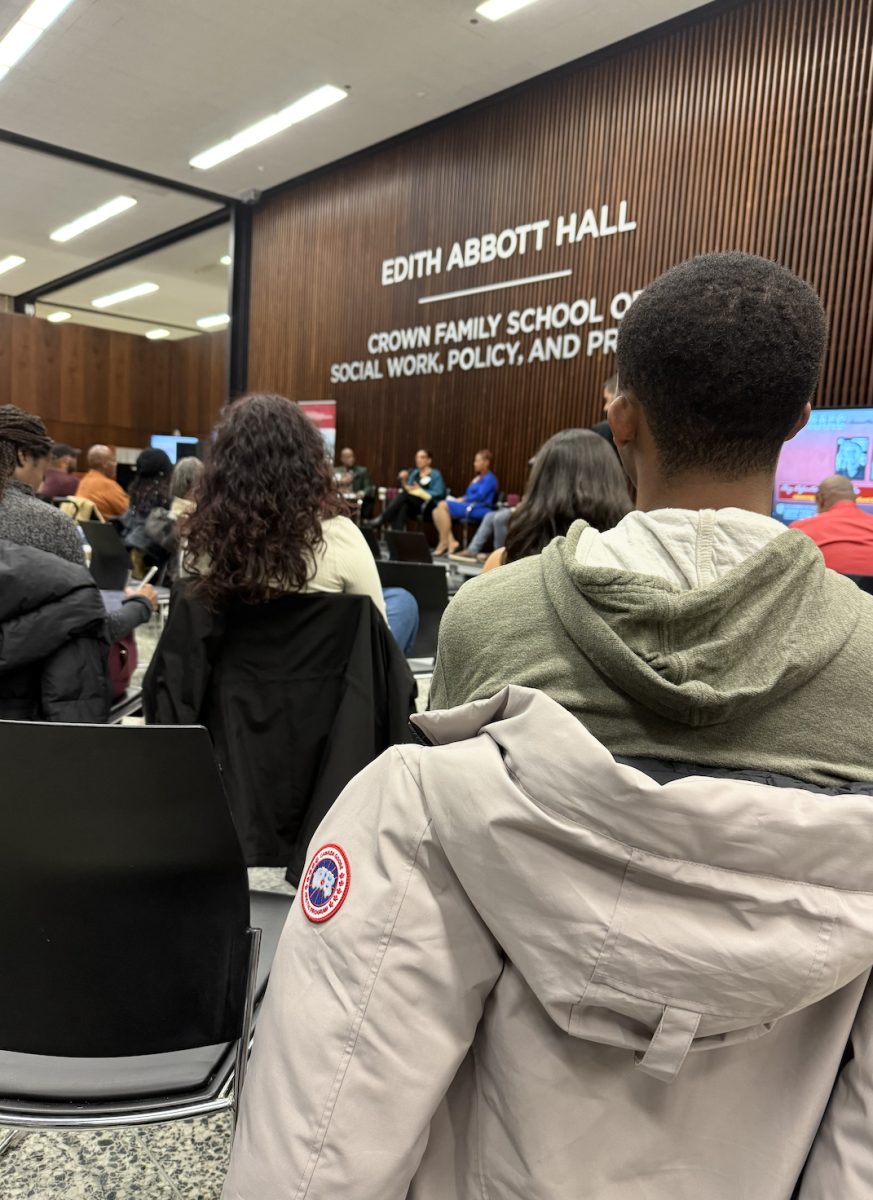The University of Chicago Political Union (UCPU) and UChicago Common Cause hosted a debate focused on the Illinois ban on rent control this past Tuesday.
The ban was instituted in 1997, and has been part of local discussion among community leaders and politicians for the past 20 years.
Third-year Anil Sindhwani moderated the debate. AK Alilonu, a second-year member of Common Cause, and Ramsin Canon, a Chicago-based attorney, argued that Illinois should lift the ban on rent control. On the opposing side, first-years Matthew Pinna and Marc Loeb argued in favor of the ban.
Alilonu and Canon conceded that implementing rent control alone will not end housing discrimination. However, they argued that lifting the ban could stabilize neighborhoods, secure affordable housing, and improve the balance of power between landlords and working-class tenants.
The opposition addressed the most urgent problems with rent control, like the segregation of people-of-color and white flight, the unique issues that Illinois faces in housing, such as high property taxes, and how to fix these problems like with the application of housing vouchers that allow low-income tenants to afford safe, healthy housing.
Both sides framed the issue as a problem that hinders low-income tenants and residents of color.
“The question of democracy has come up a lot today,” Loeb said. “In a technical, legal sense, Illinois can tell its municipalities to do whatever it wants, including banning rent control. However, I’ve always felt this is kind of an ‘assholeish’ argument. Just because it is legal to do something does not mean it is right or beneficial to do something.”
The opposition argued that high property taxes throughout parts of Illinois force residents to leave their homes in search of communities with more manageable rates, and that those who suffer from rent control are often not the ones who choose to implement it.
A solution that Pinna highlighted was housing vouchers to accommodate low-income residents. Essentially, housing vouchers aid in providing secure housing to low-income residents, the elderly, and the disabled. A housing voucher is paid to a landlord by a public housing agency that represents the family in need of assistance.
In concluding remarks, Alilonu brought the argument back to UChicago.
“UChicago is a school of econ majors… and econ textbooks might not say the nicest things about rent control. One of those things is that it imposes a price ceiling, which create shortages. That would be a problem if rent control had price ceilings, but it doesn’t,” Alilonu said.
The debate concluded with questions from the audience, with one such question highlighting how to compensate landlords without rent control, and time following the Q&A to individually speak with members of the panel.








